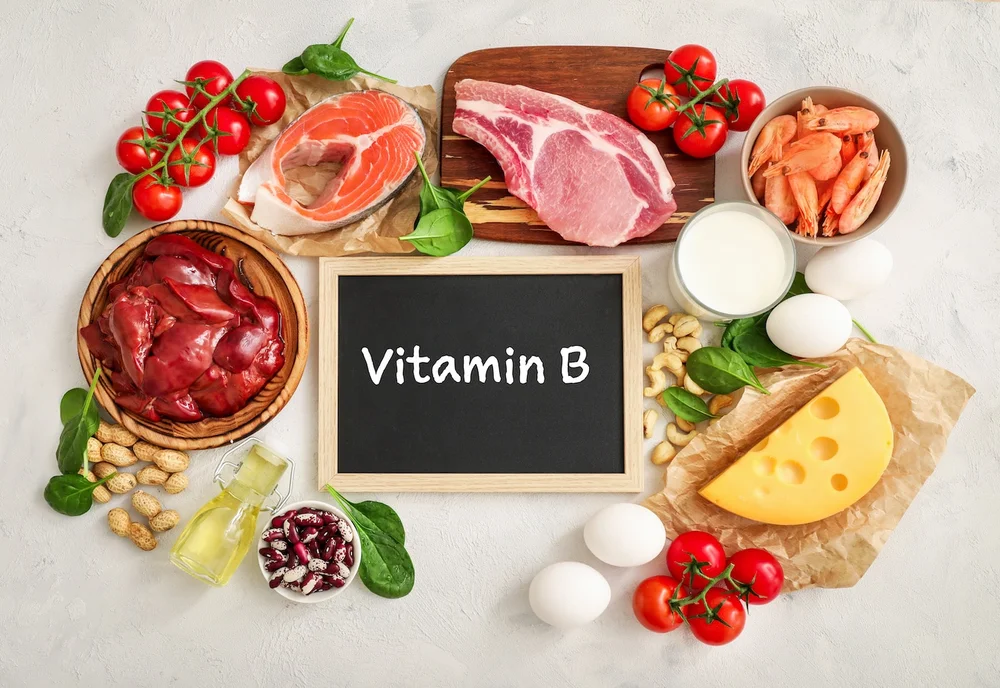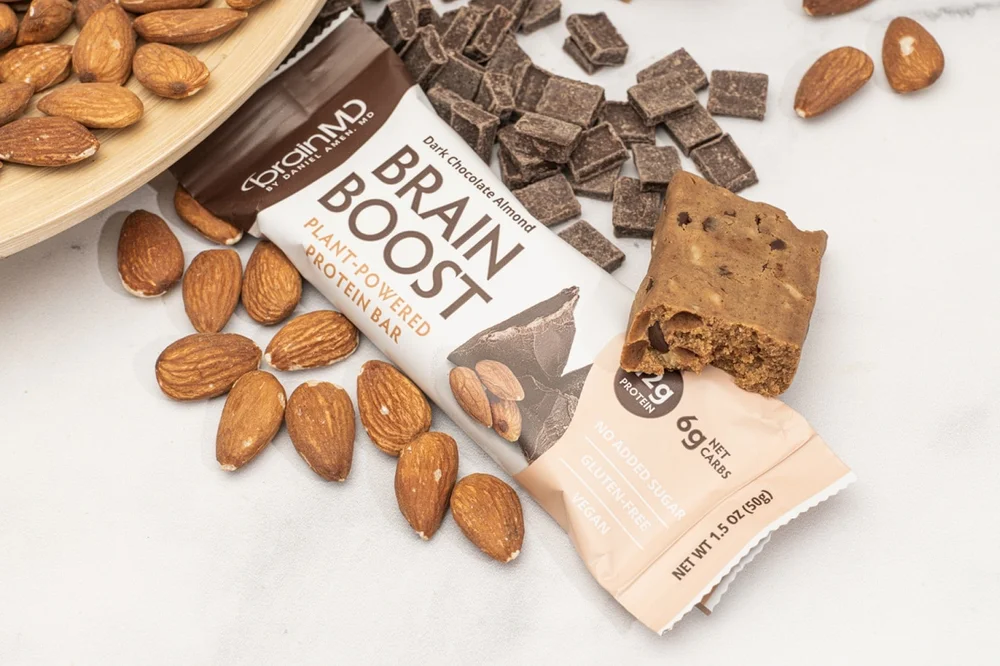B Vitamin Benefits: Here Are 8 Great Ways to Energize Your Days!
Medically Reviewed by Dr. Nicole Avena
Do you find yourself reaching for that extra cup of coffee to help you get through the day?
You aren’t alone.
In today’s fast-paced world, we all could use more energy. Sadly, many turn to unhealthy energy boosters like sugary sodas, caffeinated beverages, or overstimulating energy drinks.
If you’re looking for a natural way to transform bouts of low energy into sustained periods of clarity and productivity, say hello to B vitamins!
What Are B Vitamins?
B vitamins are essential nutrients that play a crucial role in maintaining our energy levels and overall health. They’re a group of water-soluble vitamins that can’t be stored in the body, so it’s important to replenish them through our daily diet. These vital vitamins assist in converting food into energy and support the proper functioning of the nervous system.
Here are the eight B vitamins:
- B1 – Thiamine
- B2 – Riboflavin
- B3 – Niacin
- B5 – Pantothenic acid
- B6 – Pyridoxine
- B7 – Biotin (or vitamin H)
- B9 – Folate (not folic acid)
- B12 – Cobalamin
Though each of these vitamins has unique functions in the body, they all work together to support the production of energy at a cellular level.
B Vitamin Benefits

Another critical function of some B vitamins is their involvement in red blood cell formation. Red blood cells transport oxygen from the lungs to different tissues and organs throughout the body. Without sufficient levels of red blood cells, our bodies may not get enough oxygen, which can result in feelings of tiredness and weakness. Among the B vitamins, vitamin B12 (in particular) helps provide oxygen for the entire body by promoting the generation of red blood cells.
Different B vitamins have specific benefits for energy production. For example, thiamine helps in the metabolism of glucose. Riboflavin works to break down fats and amino acids, while pantothenic acid supports adrenal gland function.
Many people may not be aware that they’re deficient in specific B vitamins, which can have a significant impact on their energy levels.
Here are some common signs of B vitamin deficiency:
Top Signs of Vitamin B Deficiency
- Fatigue and Low Energy
One of the main signs of B vitamin deficiency is feeling tired and sluggish throughout the day. Since B vitamins can assist with cellular metabolism, our bodies may not be able to efficiently produce energy when stores of these vitamins are low.
- Muscle Weakness
The lack of certain B vitamins can cause muscle weakness and even cramping. These vitamins can help maintain healthy nerve function and support muscle strength and movement.
- Mood Changes
Low levels of certain B vitamins may lead to irritability, mood issues, or mental fog. These vitamins can help regulate mood by promoting “feel good” neurotransmitters such as serotonin and dopamine.
- Pale Skin
Vitamin B12 deficiency can result in pale skin due to reduced red blood cell production. Since red blood cells carry oxygen throughout our bodies, low levels can lead to fatigue and exhaustion.
- Tingling Sensations
Numbness or tingling sensations in the hands or feet may indicate a deficiency in vitamin B6 or B12. These vitamins help support nerve health, but having low levels of them may cause nerve pain and possible nerve damage.
Best Sources of B Vitamins in Foods
Whole Grains
Whole grains like brown rice, oats, and quinoa are excellent sources of B vitamins, particularly thiamine, riboflavin, niacin, and folate. Among its many beneficial actions, thiamine helps convert carbohydrates into energy.
Leafy Green Vegetables
Dark leafy greens like spinach, kale, and broccoli are rich in vitamin B6 and folate. These Bs are essential for producing red blood cells that carry oxygen throughout the body.
Legumes
Black beans, kidney beans, and lentils are all excellent sources of fiber and protein. They also contain a significant amount of energizing B vitamins (such as thiamine and folate).
Nuts and Seeds
Almonds, walnuts, and sunflower seeds contain high levels of vitamin E. They also provide significant amounts of B vitamins, especially thiamine.
Eggs
Eggs contain all nine essential amino acids and are a superb source of protein. They also have high concentrations of riboflavin and B12, which can help provide clean energy.
Lean Meats
Chicken, turkey, and lean cuts of beef are excellent sources of niacin and vitamin B6, which help aid in energy production.
Wild-caught Fish
Salmon, tuna, and mackerel are high in vitamin B12. Additionally, fish are rich in omega-3 fatty acids.
Fruits
Though not the most abundant source of B vitamins compared to other foods on this list, fruits like apples and bananas contain sufficient amounts of thiamine, which can help support energy levels.
Consuming a variety of these foods can help ensure you have an adequate intake of all eight essential B vitamins.

B Vitamin Supplements
While supplements can provide an additional source of B vitamins, they’re no substitute for a healthy diet. In addition to B vitamins, whole foods contain a variety of other beneficial nutrients that can’t be replaced by only taking supplements. It’s recommended to obtain your daily dose of B vitamins from nutritious foods like those listed above.
However, certain groups of people may struggle to meet their daily requirement of B vitamins solely through dietary sources. For instance, vegetarians and vegans are at higher risk for vitamin B12 deficiency since this nutrient is mainly found in animal products.
Additionally, people with absorption issues, or those who’ve had weight loss surgeries, may find it difficult to obtain enough B vitamins from foods alone. For these individuals, incorporating specific supplements based on their unique needs may help ensure they get adequate amounts of all eight essential B vitamins.
Age can impact our body’s ability to efficiently absorb certain nutrients too. As we age, our digestive system may not function as effectively as in our younger years due to reduced production of stomach acid or the lack of enzymes needed for nutrient absorption. This can lead to deficiencies in vitamin B12 and other crucial nutrients. In such cases, supplementing with specific forms of vitamin B12 that are easily absorbed by the body can be beneficial.
Taking B vitamins, as well as other dietary supplements, should always be done under the guidance of a doctor or healthcare professional. By understanding your individual needs, they can determine which B vitamins you should incorporate into your daily supplement routine to help you maintain overall health and wellness.
B Vitamins for Energy
B vitamins help promote optimal energy levels in the body, play a crucial role in various metabolic processes, and support overall health and well-being.
To maintain consistent energy levels, it’s necessary to get adequate levels of B vitamins daily. Incorporating a diverse range of foods that are rich in these essential nutrients into your diet, or taking a daily multivitamin supplement that contains all eight B vitamins, can help you feel more energized and improve your overall health and well-being.
Remember to consult with a healthcare professional before making any major changes to your diet or lifestyle.
At BrainMD, we’re dedicated to providing the highest purity nutrients to improve your physical health and overall well-being. For more information about our full list of brain healthy supplements, please visit us at BrainMD.
These statements have not been evaluated by the FDA. This content is for informational purposes only. It is not meant to substitute for medical or healthcare advice from a physician, nor is it intended to diagnose, treat, cure, or prevent any disease. Consult your healthcare provider before beginning a new health regimen.




This was much needed imformation for me I will some 77 and my energy level has been low
Why only lean meats? We need some saturated fat.